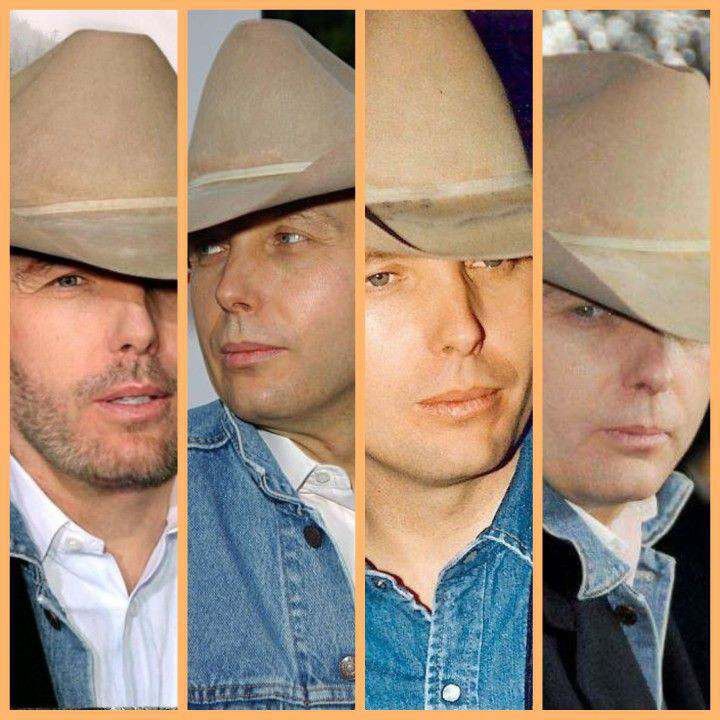
A weathered heart learning to trust again—Dwight Yoakam sings about second chances with the poise of a survivor and the urgency of a young man in love.
When “Second Hand Heart” surfaced in 2015, it arrived not just as a single but as the pulse of Yoakam’s album of the same name—Second Hand Heart—released April 14, 2015 on Warner Bros. Nashville. The album opened strong: No. 2 on Billboard’s Top Country Albums, No. 18 on the Billboard 200, with first-week U.S. sales around 21,000, and even No. 3 on the U.K.’s Official Country Artists Albums Chart. The title track itself made a brief run on Billboard’s Country Airplay, ultimately peaking in the Top 50 (No. 43) later that year—a modest chart story for a song that’s grown into a late-career favorite among fans who hear their own mileage in its refrain.
The backstory adds grain and glow. Yoakam tracked the record in Studio B at Capitol Records in Hollywood—the room where Nat King Cole and Sinatra left their fingerprints in reverb—and you can hear that space in the gleam and bite of the guitars. The Los Angeles Times described the album’s feel as “shiny but serrated,” built on a triple-guitar attack and the honest acoustics of the room. It’s a setting that fits the lyric: a place where ghosts mingle with neon, and where a singer can measure his own time against a grand American echo.
Stylistically, the song sits right at the seam where Yoakam has always done his best work: the Bakersfield snap of Buck Owens meeting the lean, West-Coast cowpunk nerve Yoakam championed when he first rattled L.A. clubs in the ’80s. Around this album, critics noted the return of that spiky energy—not nostalgia for its own sake, but a renewal of the urgency and swing that made him an outlier in the first place. If 3 Pears (2012) was the warm embrace, Second Hand Heart is the sly grin and quick step toward the dance floor, shoulders back, boots ready.
What makes “Second Hand Heart” linger, especially for listeners who’ve lived a little, is its plainspoken wisdom. Yoakam writes (and sings) like a man who’s bargained with disappointment but never surrendered to it. The title itself is a used-lot confession—this heart isn’t new, it’s second-hand—and the lyric carries that idea with tenderness rather than self-pity. There’s courtship in his voice, yes, but also caution: an honest inventory of the scuffs and dents that come from years of wear. And then comes the turn only Yoakam can land, that high tenor riding the beat as if to say, “We may be frayed, but we’re still here.” The band answers with electric guitars that chime and slash, a rhythm section keeping time like a heartbeat trying to steady itself. You don’t just hear a love song—you hear two people deciding to try again, eyes open.
For those of us who remember the first time we were jolted by “Guitars, Cadillacs” or steadied by “A Thousand Miles from Nowhere,” this track feels like a long-distance postcard from the same road. Yoakam’s phrasing still flickers with that elastic yodel and Bakersfield twang, and the production—self-produced with mix-master Chris Lord-Alge across the album—keeps everything brisk and unfussy. The guitars shimmer like chrome under diner lights; the drum pocket moves with a dancer’s economy. It’s music built for windows-down two-lanes and for quiet kitchens after midnight, when second chances are negotiated over coffee instead of champagne.
The larger story of Second Hand Heart (the album) matters here, too. After the creative resurgence of 3 Pears, Yoakam doubled down on songs that feel lived-in, writing nearly the entire record himself and recording with a band that sounds both road-tested and ready to sprint. That resolve shows in the title cut’s construction: a melody you can hum once and keep, a chorus that asks only that you tell the truth about where you’ve been. No cheap sheen, no forced nostalgia—just craft sharpened by decades and presented with the swagger of a man who knows his lane and still finds new scenery in it.
Meaning? At its core, “Second Hand Heart” is a pledge between imperfect people. It understands that love, past a certain age, is a practice of maintenance and grace. You don’t promise to be unscarred; you promise to be present. The song invites you back to the floor anyway, to test the hinges and see if the old moves still work. For many older listeners, that honesty is the hook: it refuses fairytales yet never lets go of romance. If anything, the romance is richer for its realism.
And the legacy? Even without a huge radio footprint, the track has aged beautifully, folded into Yoakam’s setlists and into fans’ lives as one of those late-night confidences only a familiar singer can keep. The album’s solid chart debut—high in both country and pop—tells you plenty about the hunger for what he does; the title song tells you why. It’s the sound of a great American stylist taking stock, tipping his hat to the past, and carrying on—proof that a second-hand heart can still beat strong, true, and in time.